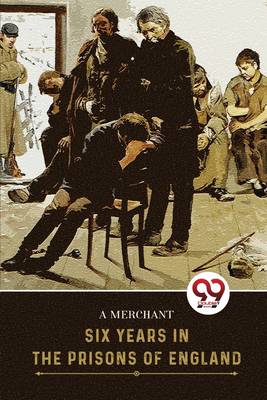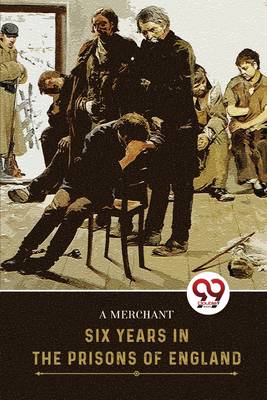
Bedankt voor het vertrouwen het afgelopen jaar! Om jou te bedanken bieden we GRATIS verzending (in België) aan op alles gedurende de hele maand januari.
- Afhalen na 1 uur in een winkel met voorraad
- In januari gratis thuislevering in België
- Ruim aanbod met 7 miljoen producten
Bedankt voor het vertrouwen het afgelopen jaar! Om jou te bedanken bieden we GRATIS verzending (in België) aan op alles gedurende de hele maand januari.
- Afhalen na 1 uur in een winkel met voorraad
- In januari gratis thuislevering in België
- Ruim aanbod met 7 miljoen producten
Zoeken
Omschrijving
A collection of accounts of the English jail system in the 1800s is included in "Six Years in the Prisons of England," which was edited by Frank of London Henderson. Politics have always been contentious when it comes to prison reform. This book offers readers the chance to learn about the treatment of prisoners in the past and provides a helpful comparison to the situation now. The book begins with a story in 1856, a merchant in a Northern City began business on his own account, without a shilling in the world. He had a spotless character, good credit, and a thorough knowledge of his business. His business connections were spread over various parts of the world, and he usually received orders by letter. At the end of his first year, his ledger showed a satisfactory balance to his credit. However, a storm swept over the commercial world in 1857, resulting in hundreds of firms in bankruptcy and ruin. He then arranged to draw bills on the firm at three months' date, payable abroad, for such amounts as my partner could see his way to meet at maturity, and had a private arrangement with my partner for obtaining what he called accommodation bills.
Specificaties
Betrokkenen
- Auteur(s):
- Uitgeverij:
Inhoud
- Aantal bladzijden:
- 162
- Taal:
- Engels
Eigenschappen
- Productcode (EAN):
- 9789357481243
- Verschijningsdatum:
- 2/01/2023
- Uitvoering:
- Paperback
- Formaat:
- Trade paperback (VS)
- Afmetingen:
- 152 mm x 229 mm
- Gewicht:
- 244 g

Alleen bij Standaard Boekhandel
+ 40 punten op je klantenkaart van Standaard Boekhandel
Beoordelingen
We publiceren alleen reviews die voldoen aan de voorwaarden voor reviews. Bekijk onze voorwaarden voor reviews.









